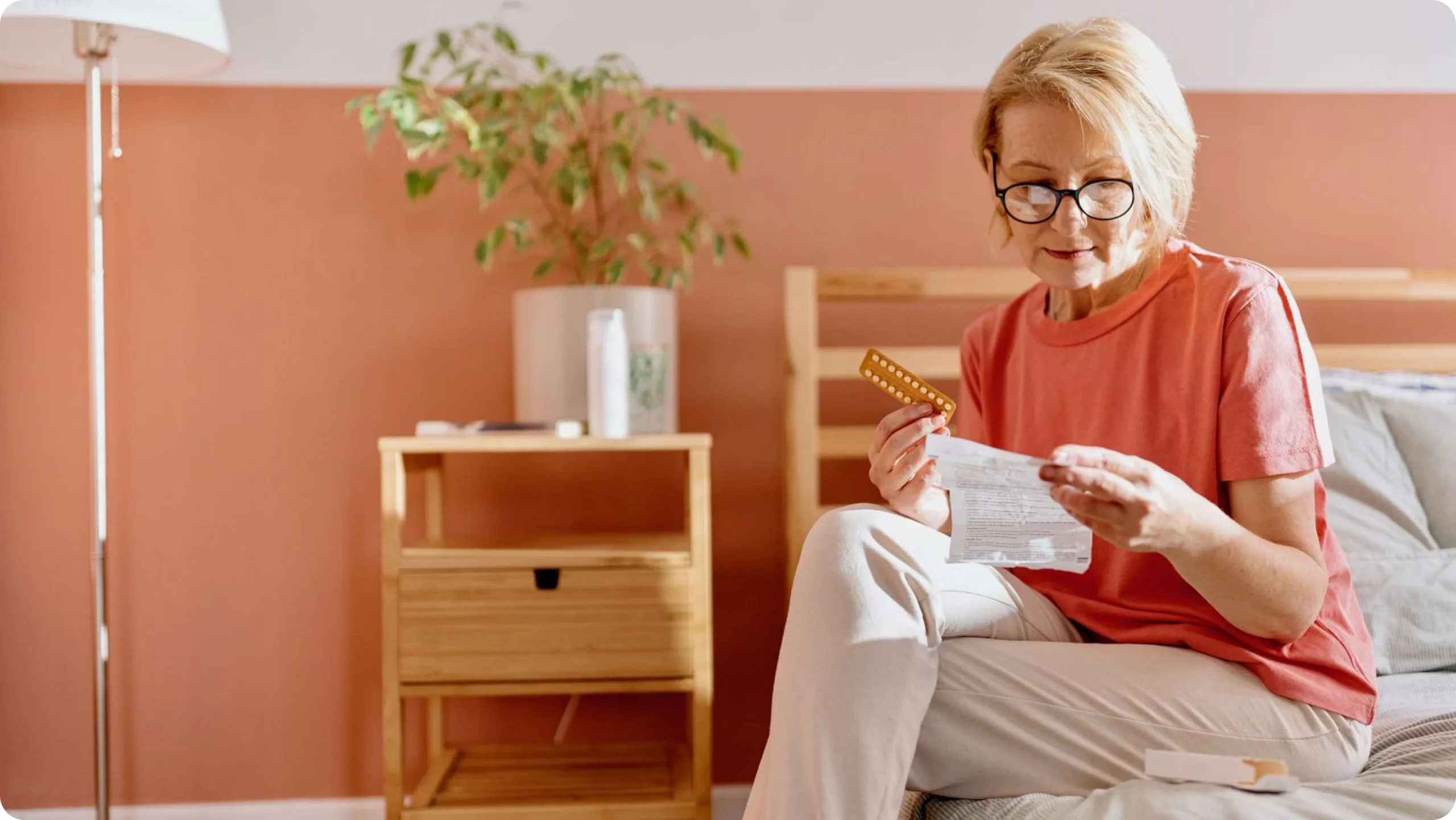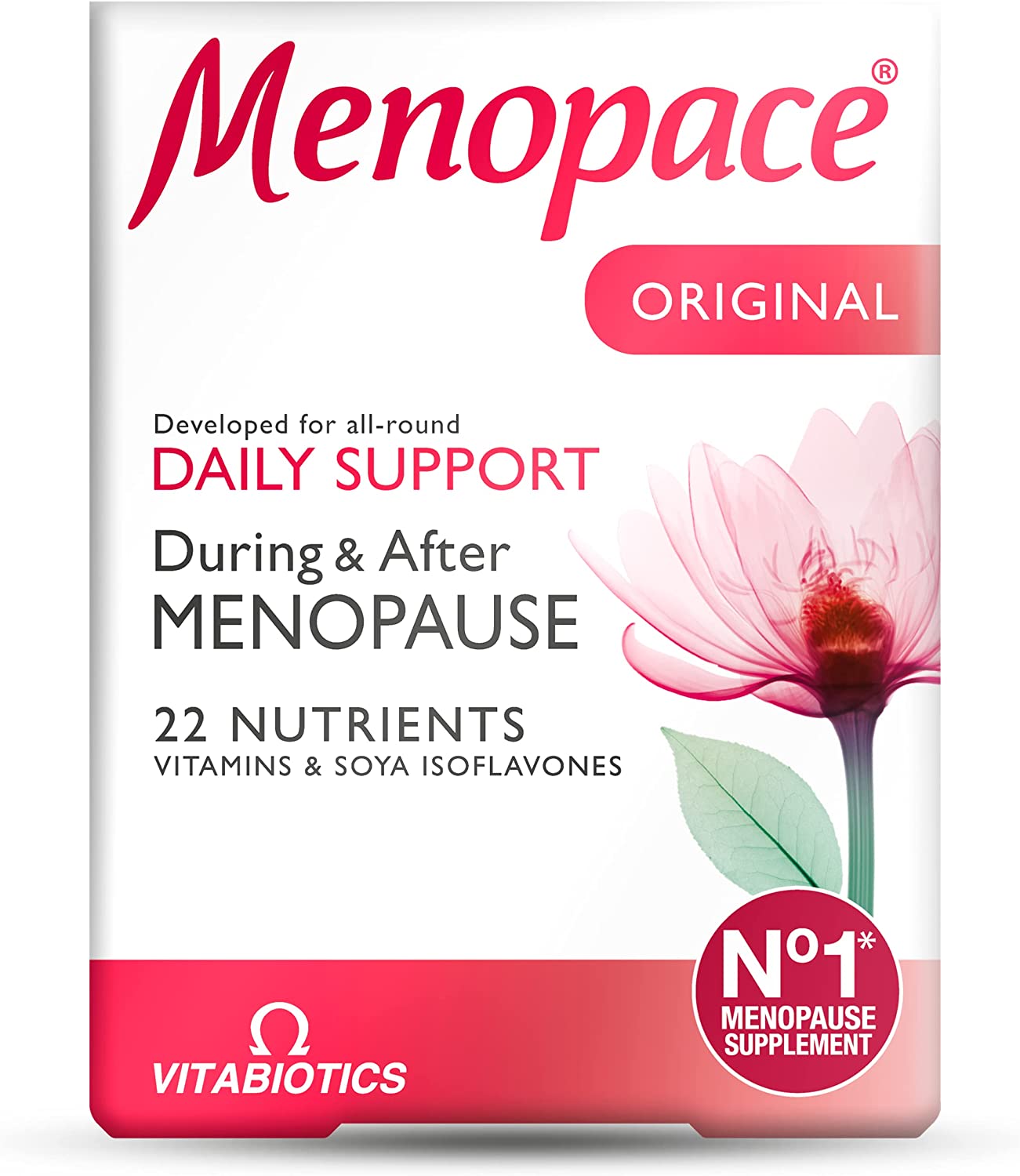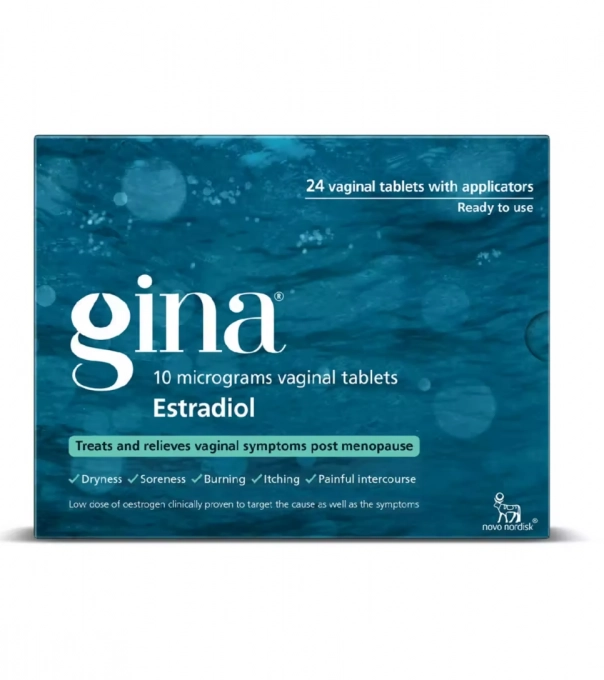Tips to Help Manage Menopause

Menopause is a natural stage of life that marks the end of a woman’s reproductive years. While it can be a positive milestone, it can also bring about uncomfortable physical and emotional changes. Gaining knowledge of some practical strategies and lifestyle adjustments is an excellent way to navigate your menopause symptoms during this transitional period.
In this post:
- What is menopause, and when does it occur?
- How to manage your menopause symptoms, dos and don’ts
- Hormone replacement therapy (HRT)
- Cognitive Behavioural Therapy (CBT)
- Further ideas to help you manage your menopause symptoms
- Menopause medicine toolkit
Menopause
Menopause is not a condition—it’s a normal, natural biological process that marks the end of a woman’s menstrual cycles and fertility as a result of decline in oestrogen levels. Menopause can lead to various symptoms, including hot flushes, mood swings and changes in sleep patterns and is formally diagnosed when a woman has not had her period for 12 consecutive months.
When does menopause usually occur?
Menopause usually occurs in a woman’s late 40s or early 50s, but the age of onset can vary wildly. A number of demographic, lifestyle, menstrual and reproductive factors—including ethnicity, socioeconomic status, how many times you’ve given birth, if you smoke, and your diet— also seem to be important determinants of the age at which natural menopause occurs.
Symptoms
Menopause symptoms can vary from woman to woman, and the intensity and duration of symptoms can vary, but they most typically include:
- Hot flushes or flashes, and night sweats—perhaps the most ‘famous’ of menopausal symptoms, these are the sudden feelings of heat, often accompanied by sweating, that can occur during the day or at night
- Irregular menstrual cycle—when your menstrual periods become irregular and eventually stops completely
- Difficulty falling asleep or staying asleep
- Mood swings, irritability, anxiety, and feeling sad
- Vaginal Dryness, itching, and discomfort during intercourse
- Decreased desire for sex
- Forgetfulness, difficulty concentrating, and mental ‘fog’
- Loss of bone density—which can lead to osteoporosis
- Weight gain particularly around the abdomen
Tips to start with
Dress in layers
To deal with hot flushes, dress in layers. Keep your environment cool and avoid triggers like caffeine, spicy foods and alcohol. Deep breathing exercises and mindfulness techniques may also to help to manage hot flushes.
Prioritise sleep
Sleep deprivation is particularly common during menopause. So, try to create a relaxing bedtime routine, avoid screen time before bed and ensure your sleeping environment is dark and comfortable.
Exercise & lift weights
As oestrogen levels decline during menopause, bone density, also referred to as bone mineral density or BMD, may decrease and puts you at greater risk of osteoporosis, which can make you much more susceptible to fractures. To help avoid losing BMD, do weight-bearing exercises, like weightlifting, dancing or even jumping up and down on the spot.
To avoid losing BMD, do weight bearing exercises
Protect your mental health and emotional well-being
Menopause can be an emotionally challenging time for many women. That’s why it is all the more important during menopause to surround yourself with a supportive network of friends and family. If the emotional impact is overwhelming, then do consider talking to a therapist or counsellor if you need additional support. Engaging in activities that make you happy, or at least bring a sense of achievement, can also positively impact your emotional well-being.
Manage stress
Stress can exacerbate menopausal symptoms. Consider stress-reducing activities like meditation, deep breathing exercises, or spending time in nature. This is often easier said than done, but taking time for self-care is crucial during this phase of life.
Stay hydrated
As hormonal fluctuations can lead to dehydration, drinking lots of fluids is essential for overall health. Drink plenty of water throughout the day—which can include foods with a high water content, such as fruits, vegetables and broth-based soups. And be sure to limit caffeine and alcohol, which can contribute to dehydration.
Embrace a healthy lifestyle
More than ever, maintaining a healthy lifestyle is crucial during menopause. Focus on a balanced diet rich in fruits, vegetables, whole grains and lean proteins. Also, regular exercise, such as walking, swimming, or yoga, can help manage weight, help with maintain bone density, reduce stress, and improve overall emotional and physical well-being.
| Do | Don’t |
|---|---|
| Dress in layers to manage your body heat | Avoid getting regular exercise |
| Avoid triggers such as caffeine and spicey food | Consume processed foods, sugary snacks, and high-fat meals |
| Exercise and lift weights | Skip regular check-ups |
| Prioritise mental health and stress management | Ignore bone health |
| Stay hydrated | Ignore vaginal health |
| Prioritise sleep | Over-commit yourself |
| Embrace a healthy lifestyle | Forget to drink plenty of water |
What about hormone replacement therapy (HRT)?
For many women, hormone replacement therapy (HRT) can be a powerful tool for managing their menopause symptoms—especially women within 10 years since the onset of menopause or under 60 years of age. HRT involves taking synthetic versions of hormones, such as oestrogen and progesterone, to replace the natural hormones that decline during menopause. The replacement hormones come in various forms, including pills, patches, creams and gels.
Overall, HRT has shown to be a valuable ally in managing the challenging symptoms of menopause. However, it’s essential to consult with a healthcare professional before considering HRT, as individual health conditions and medical history must be taken into account.
With the right guidance, HRT can be a guiding light, helping women embrace this new phase of life with greater comfort and confidence. But remember, menopause is a natural part of a woman’s journey, and HRT is just one of the options available to help you navigate your symptoms.
Further options
Cognitive Behavioural Therapy (CBT)
Cognitive behavioural therapy (CBT) has shown great promise in helping women to cope with their menopause symptoms. Seeking out CBT therapists who specialise in menopause-related issues can provide invaluable tools to manage stress, boost resilience and improve overall mental well-being.
Herbal remedies
Herbal remedies have been used for centuries to address menopausal symptoms naturally. Black cohosh, evening primrose oil, and red clover are among the herbs commonly used to alleviate hot flashes, night sweats and mood swings. But be mindful that herbal supplements might interact with existing medications or health conditions.
Alternative therapies
Many women opt for alternative therapies like acupuncture, homeopathy or aromatherapy to balance the body’s energy and reduce specific menopausal symptoms. While that might sound strange to some, alternative therapies such as acupuncture have been shown to significantly alleviate some menopause symptoms. As with herbal remedies, it’s crucial to seek guidance from a qualified practitioner.
Superfoods
Superfoods is a marketing term, and not a scientific classification, for foods rich in certain minerals, vitamins, healthy fats and nutrients. Adopting a superfood diet has been proven to help some women ease their menopausal symptoms and improve their overall well-being.
Here is a list of superfoods you may want to consider including in your diet:
- Flaxseeds: Packed with lignans, a type of phytoestrogen, flaxseeds help to regulate hormonal imbalances and reduce hot flushes.
- Soy: Products like tofu, tempeh and edamame are rich in isoflavones, another type of phytoestrogen. Isoflavones mimic oestrogen in the body, providing relief from menopausal symptoms.
- Leafy Greens: Dark leafy greens like spinach, kale and Swiss chard are a great source of calcium and magnesium. These minerals are vital for bone health, which becomes crucial during menopause when the risk of osteoporosis increases.
- Fatty Fish: Omega-3 fatty acids found in fatty fish such as salmon, mackerel and sardines can help combat mood swings and promote heart health. They also reduce inflammation, which can alleviate joint pain and bloating experienced during menopause.
- Nuts and Seeds: Almonds, walnuts, and sunflower seeds are rich in vitamin E, which has been linked to a decreased risk of hot flushes. Additionally, they offer healthy fats and nutrients that support brain health and overall energy levels.
Medicines


Vitabiotics Menopace – 90 Tablets
Vitabiotics Menopace is a comprehensive supplement specially formulated to support women’s overall health during the transitional phase to menopause. Formulated with essential vitamins, minerals, and micronutrients, Menopace works to protect your diet and nutrition during this time of change. It includes key nutrients like vitamin B6, which contributes to hormonal activity regulation, and pantothenic acid, which supports normal mental performance. Menopace is a drug-free and hormone-free supplement, making it a trusted choice for menopause support.

Gina 10mg Vaginal Tablets – 24 Pack
Gina 10mg Vaginal Tablets are used as a local vaginal hormone replacement therapy (HRT) to relieve symptoms associated with menopause, such as vaginal dryness and irritation.
Main takeaways
- Menopause is a natural stage of life that marks the end of a woman’s reproductive years.
- The primary symptoms of menopause include hot flushes (or hot flashes), mood swings, and changes in sleep patterns.
- There are many proven options from for managing symptoms including stress management, exercise, healthy diet, and hormone replacement therapy (HRT).
- Alternative approaches that may help you manage menopause symptoms include acupuncture, superfoods, cognitive behavioural therapy (CBT), and taking herbal remedies.
References
Gold, E., et al (2011). Obstet Gynecol Clin North Am. The Timing of the Age at Which Natural Menopause Occurs
Zehnacker, C. et al (2007). Effect of weighted exercises on bone mineral density in post menopausal women. A systematic review
Cagnacci, A. et al (2019). Medicina (Kaunas). The Controversial History of Hormone Replacement Therapy
Chien, T. et al (2017). PLoS One. Effect of acupuncture on hot flush and menopause symptoms in breast cancer- A systematic review and meta-analysis
PillSorted
PillSorted is a full service pharmacy that delivers trusted pharmacy products, over-the counter medications, and the prescriptions your doctor recommends, directly to your door. Your PillSorted pharmacist is happy to answer your questions about menopause and potential treatment options at 0333 4050380 or help@pillsorted.com.

All third-party trademarks (including logos and icons) referenced by PillSorted remain the property of their respective owners. Unless specifically identified as such, PillSorted’s use of third party trademarks does not indicate or imply any relationship, sponsorship or endorsement between PillSorted and the owners of these trademarks.






















